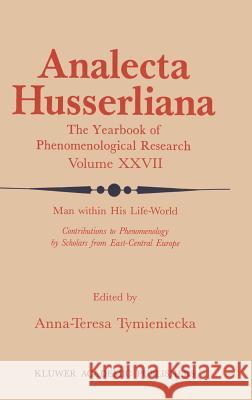Man Within His Life-World: Contributions to Phenomenology by Scholars from East-Central Europe » książka
topmenu
Man Within His Life-World: Contributions to Phenomenology by Scholars from East-Central Europe
ISBN-13: 9789027727671 / Angielski / Twarda / 1989 / 838 str.
Man Within His Life-World: Contributions to Phenomenology by Scholars from East-Central Europe
ISBN-13: 9789027727671 / Angielski / Twarda / 1989 / 838 str.
cena 1207,67
(netto: 1150,16 VAT: 5%)
Najniższa cena z 30 dni: 1156,64
(netto: 1150,16 VAT: 5%)
Najniższa cena z 30 dni: 1156,64
Termin realizacji zamówienia:
ok. 22 dni roboczych
Dostawa w 2026 r.
ok. 22 dni roboczych
Dostawa w 2026 r.
Darmowa dostawa!
Kategorie:
Kategorie BISAC:
Wydawca:
Kluwer Academic Publishers
Seria wydawnicza:
Język:
Angielski
ISBN-13:
9789027727671
Rok wydania:
1989
Wydanie:
1989
Numer serii:
000330125
Ilość stron:
838
Waga:
1.35 kg
Wymiary:
23.39 x 15.6 x 4.45
Oprawa:
Twarda
Wolumenów:
01
Dodatkowe informacje:
Bibliografia
Wydanie ilustrowane
Wydanie ilustrowane











